|
Getting your Trinity Audio player ready...
|
Guwahati, 23rd February 2025.
On Sunday, RSS Guwahati mahanagar organized a baudhik karyakram for karyakartas at the South Point School premises in Barshapara. RSS Sarsanghchalak Ji delivered an enlightening address emphasising on Panch Parivartan as key to social transformation. In his speech, he extensively discussed the five essential transformations needed for society, namely social harmony, family values, environment protection, Swadeshi practices, and civic duties.
He emphasized the importance of fostering friendship and unity among different communities, castes, religions, regions, and languages for achieving a harmonious society. He further mentioned that promoting family values within one’s own household would guide society in the right direction.
He also highlighted the collective responsibility of society in environmental conservation, emphasizing actions such as water conservation, lessening plastic use, and planting trees. He stressed that every Indian household should embrace Swadeshi practices in their language, attire, food, housing, and travel also.
Sarsanghchalak Ji encouraged everyone to reduce the use of foreign languages in daily life and to converse in their native language.
In his speech, he pointed out that as far as our civic duties are concerned, we should follow all rules and regulations of the state, at the same time, it is the duty of every citizen to also adhere to traditional social moral norms for the betterment of society which are not mentioned in any civic rule book.
The event was also attended by Dr. Bhupesh Sharma, the Sanghchalak of the Uttar Assam Prant, and Guruprasad Medhi, the Sanghchalak of the Guwahati Mahanagar unit of RSS along with swayamsevaks and karyakartas.

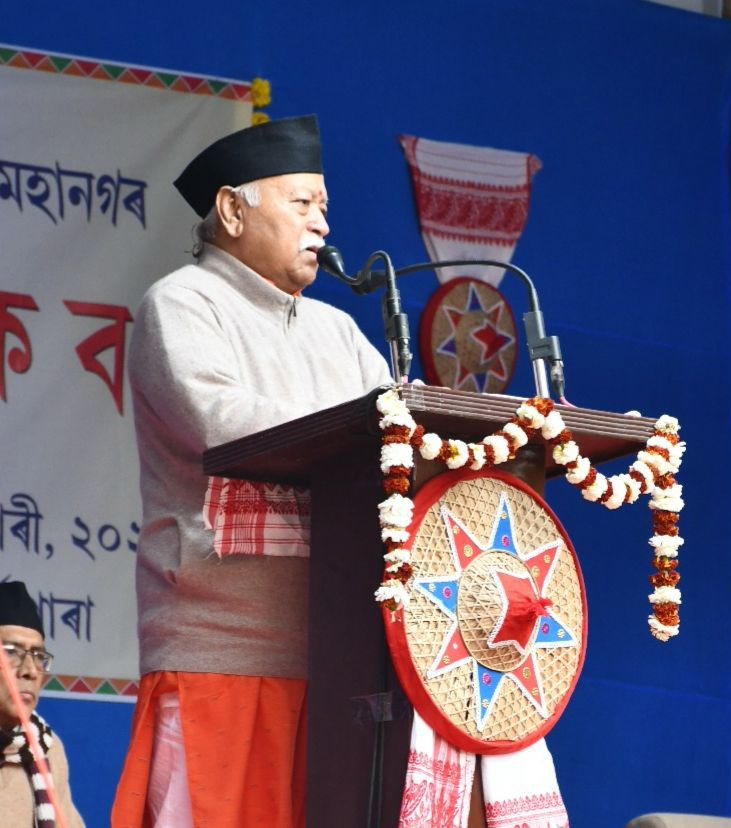
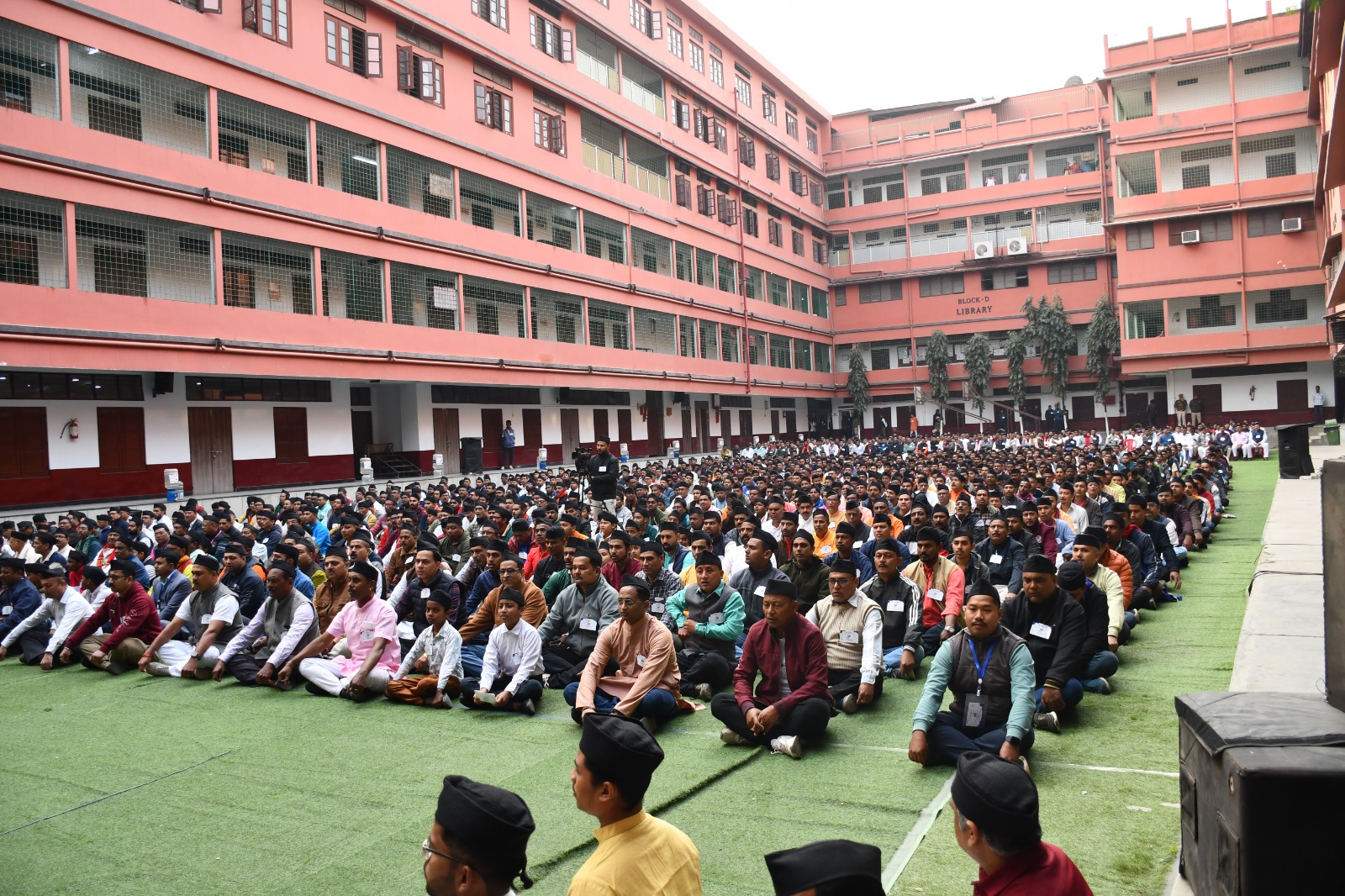
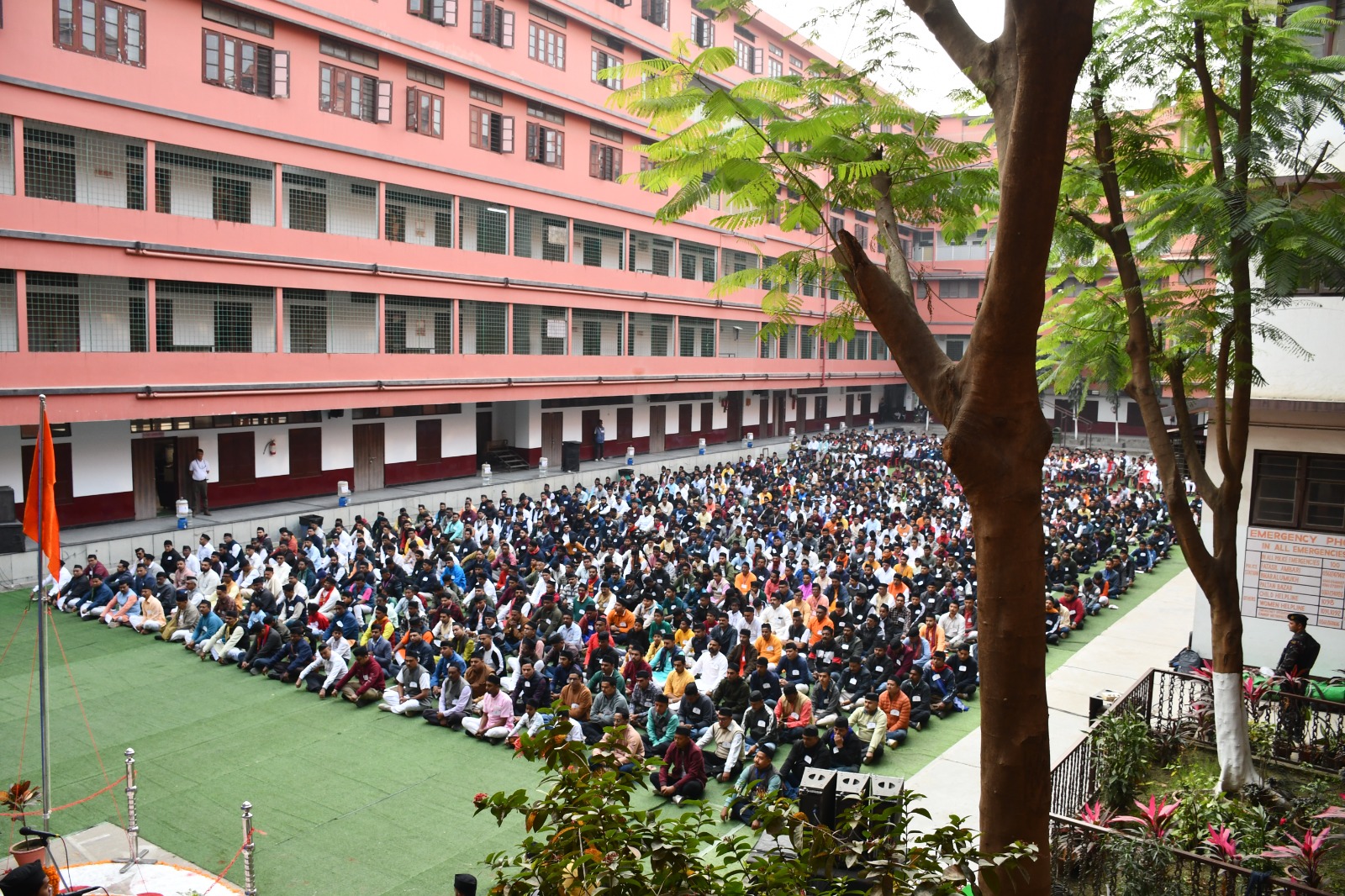
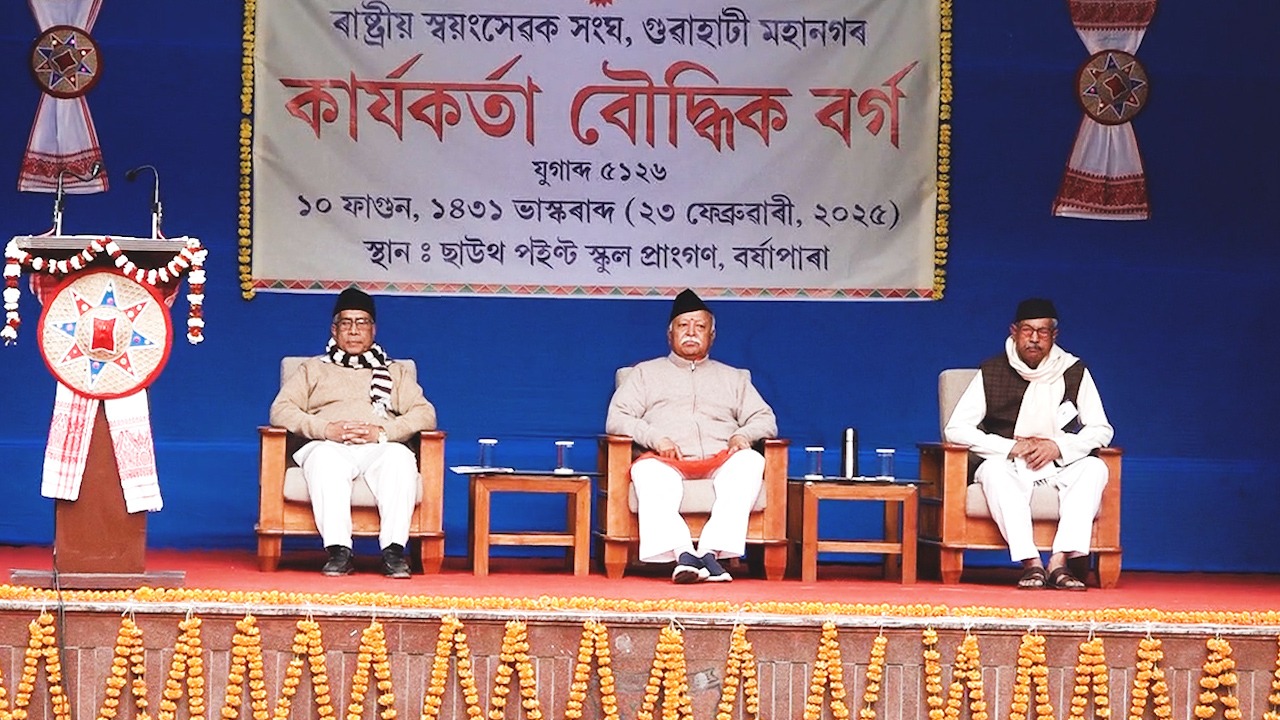
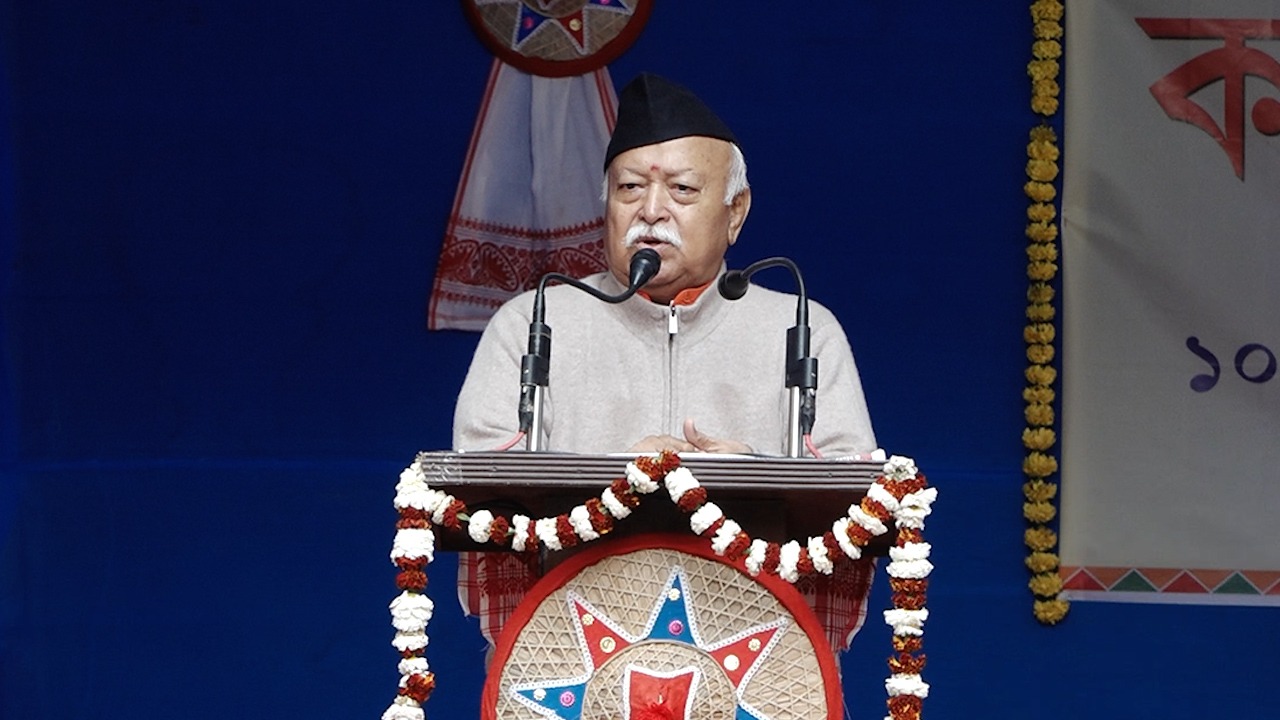


The speech by RSS Sarsanghchalak at the recent event in Guwahati brings to light the significant role of Panch Parivartan in shaping a transformed society. While the emphasis on social harmony, family values, and environmental conservation is commendable, one must consider how these principles will be implemented in a diverse and pluralistic society like India.
Promoting unity across communities, religions, and languages is undoubtedly important, but how do we ensure that this unity respects the nuances of our diversity, without imposing uniformity or undermining individual identities? Similarly, the call for a return to Swadeshi practices, while rooted in promoting self-sufficiency, raises questions about how to balance global interconnectedness and the benefits of cultural exchange in the modern world.
Civic duties are indeed fundamental to societal progress, but the reference to “traditional moral norms” prompts further reflection. How do we define these norms in an evolving society where values and perspectives constantly change? Can we ensure that these norms are inclusive and adaptable to contemporary needs, without becoming rigid or exclusionary?
Overall, while Panch Parivartan presents a vision of an ideal society, the challenge lies in how we navigate its principles with sensitivity, inclusivity, and an eye toward the complexities of a rapidly changing world.